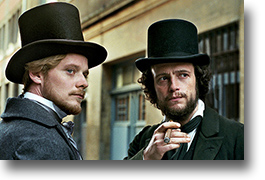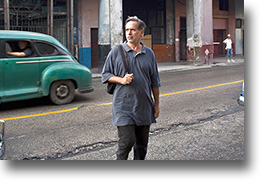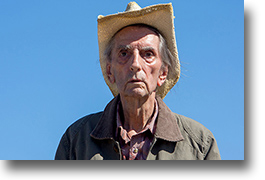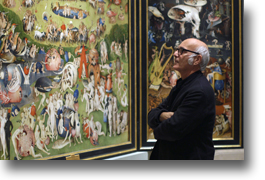
 |
 |
|
USA, 2017, dir. Todd Haynes, 117 mins Date and Venues 13 October 7:30pm at The Centre for Performing Arts; 13 October 9:15pm at Vancouver Playhouse In Wonderstruck, Todd Haynes diverts from his usual fare and goes with a mainstream family film. Here he uses a time-shifting device by switching between two alternating narratives fifty years apart, though both set chiefly in New York City. The more current takes place in 1977. 12-year-old Ben is mourning the recent death of his devoted mother (a wonderful cameo from Michelle Williams), when a freak accident causes deafness. The other storyline occurs in 1927, with Rose, a young deaf girl with an obsession with finding her mother, Lillian Mayhew, a silent-screen movie actress. In both these parallel storylines the characters run away to New York: From Hoboken for Rose, from Gunflint, Minnesota for Ben. They venture in the belief of discovering something that brings purpose to their young lives. The two story streams are so disparate, it’s as if they were constructed by different directors: Rose’s story is a sublime aesthetic filmed in ‘black & white,’ Ben’s story is audacious and filmed in colour. Predictably, the two narratives collide, but by the time they do, the audience has already figured out the ending. Deaf actor Millicent Simmonds turns in an illuminating portrayal of Rose. Wonderstruck was presented as the part of the Vancouver International Film Festival Closing Gala. The following awards were given to films featured during the festival: Super Channel
People's Choice Award VIFF Most
Popular International Feature VIFF Most
Popular International Documentary VIFF Most
Popular Canadian Documentary VIFF Impact
Award
China/Australia/USA, 2017, dir. Sam Voutas, 88 mins In Mandarin with English subtitles Dates and Venues 8 October 3:15pm at Vancouver Playhouse; 12 October 6:15pm at International Village 9 Australian director Sam Voutas and Canadian producer Melanie Ansley are a husband and wife team of filmmakers who specialize in movies in Mandarin using Chinese actors. Their latest film, King of Peking, is a charming comedy about a father and son relationship. Big Wong (Zhao Jun) has a fascination of western cinema and tries to impart that passion on Little Wong (Wang Naixun). The film is set in the late nineties around Beijing. Divorcee Big Wong is not likely to achieve a father of the year award, but loves his son and wants him to be happy and even educated, but to the chagrin of his ex-wife, inolves him in his risky bootlegging business.The two main actors don't really look related, but demontrate a convincing connection with each other. Sam Voutas is fluent in Mandarin and obviously has an understanding of Chinese culture, even the economic gap between rich and poor. After the presentation, Voutas and his wife Melanie Ansley made themselves available for a ‘Question & Answer’ session. Apparently King of Peking was produced for internet consumption in China and has been already shown around several festival, starting with the Tribeca Film Festival. Ms. Ansley mentioned that it’s much easier making a period film from the Qin Dynasty than in the nineties because most of the architectureand popular culture from that era has been erased. The team went to Hebei Province to find suitable locations. Voutas noted that shooting at any location is hardly an issue in China, but problems arise with distribution because of censorship laws. He also remarked that he relied on classical music in the soundtrack to get around copyright infringement. The film's storyline is fictional, inspired by Voutas' awe of how much the bootlegging industry is part of mainstream commerce in China.  Borg
vs. McEnroe Borg
vs. McEnroe
Sweden/Denmark/Finland, 2017, dir. Janus Metz, 100 mins In English and Swedish with English subtitles Dates and Venues 7 October 8:45pm at The Centre for Performing Arts; 11 October 6:30pm at The Centre for Performing Arts; 13 October 3:30pm at Vancouver Playhouse Of the hundreds of
films featuring the outcome of a sports event, few (not counting documentaries),
have been about tennis. Janus Metz believes that the 1980 Wimbledon final
between Björn Borg and John McEnroe is worth retelling on the big
screen. Billed in Britain as The Iceman vs. The Brat, it suggests that
the two athletes are diametrically opposite. Certainly to tennis enthusiasts
it would seem that their personalities, at least on the court, are poles
apart. However, Metz’s film shows that the two had more in common
with each than may have been supposed. While Borg seemed to contain his
emotions and McEnroe allowed his emotions to spill over on court or anywhere
else, both were fiercely competitive. This film mostly succeeds because
of the performances of Sverrir Gudnason, a dead ringer for Borg and Shia
LaBeouf, who barely shares a slight resemblance to McEnroe, yet manages
to bring out his pugnacious attitude. Worthy performances by Stellan Skarsgård
as Borg’s coach and Tuva Novotny as Borg fiancé Mariana Simionescu
make this a sports film worth seeing.
Canada, 2017, dir. Cody Bown, 109 mins Dates and Venues 3 October 9.15pm at Rio Theatre; 10 October 3.30pm at International Village 10 Most people only know two things about Fort McMurray: the wildfires that ravaged the suburbs last summer and the oil sands. For those who have gone to work in this former boomtown, it’s a place to go and make decent money for awhile, then return home. If you aren’t fortunate enough to work for Syncrude or Suncor, there is not much point in staying there. Cody Bown’s low budget film focuses on a group of young people who have had to grow up there. They left high school without too many career prospects or much motivation to improve them. Feeling alienated, they’re trying to get by, but not doing a very good job it. The film suffers somewhat from poor editing. It could easily be 15 minutes shorter without sacrificing content. Sitting through the film I felt that the writing was over simplified, but on reflection the dialogue is clearly representative of twenty-somethings who have had little opportunity to develop a mature outlook. An ensemble cast of emerging talent do their best with what they’ve been given. Jared Abrahamson and Fort McMurray native Morgan Taylor Campbell in particular give intense performances as lost souls. One thing that still keeps me guessing is the title – none of the film’s characters are named Gregoire?  The
Young Karl Marx The
Young Karl Marx
France/Germany/Belgium, 2017, dir. Raoul Peck, 118 mins In English, German, French with English subtitles Dates and Venues 9 October 9pm at The Centre for Performing Arts; 13 October 3:30pm at SFU Goldcorp Centre One might expect a film with dialogue in three different languages, focusing on two German political theorists in the mid-nineteenth century to be a bit of a yawner. Despite its weighted political overtones and the misleading title, Raoul Peck’s film succeeds on a number of levels. The film has as much to do with Friedrich Engels as Karl Marx. Perhaps the producers felt the title ‘Young Friedrich Engels’ or ‘Karl and Friedrich’ would not have the same cachet. In this film, it’s Engels that turns the League of the Just annual congress upside-down in driving a vote to adopt a new charter as the Communist League and pushes The Communist Manifesto. Raoul Peck brings some human interest to his film by recognizing their wives: Mary Burns and Jenny von Westphalen. If Engels and Marx were of similar ideology and education, Burns and von Westphalen could not be more disparate. Marx’s wife was cultured and well-educated; Burns was an Irish streetwise factory worker with little or no formal education. In a contradiction of style, an ecstatic montage of modern socio-political events is shown during the final production credits to the accompaniment of Bob Dylan’s “Like a Rolling Stone.”
USA, 2016, dir. Alexandra Dean, 90 mins In English, occasional German with English subtitles Dates and Venues 28 September 6.45pm at SFU Goldcorp Centre; 8 October 9.30pm at International Village 10; 11 October 3:45pm at Vancouver Playhouse Alexandra Dean's illuminating Bombshell: The Hedy Lamarr Story, as the title implies is a cautionary tale about the tragic life of Hedy Lamarr. Aside from Cecil B. DeMille’s Samson and Delilah, in which she played Delila, this biographical documentary is arguably her most interesting film. Lamarr, who changed her name from Hedwig Kiesler when she arrived in the United States in the late thirties, was born in Vienna and attended private schools. The word “Bombshell” in the title is intentionally ironic. The raven-haired natural beauty disliked being thought of simply as eye candy. Dean's film, which boasts Susan Sarandon as executive producer, kindly steers the narrative away from her frustrating Hollywood life to her genius as an inventor. Her invention of alternating frequency is considered the bedrock of Bluetooth and mobile telephone technology. The director doesn’t hold back on the unpalatable aspects of the star’s life. There is a brief nod to the bizarre shop-lifting incident and the desperate undertaking of plastic surgery that left her disfigured.
USA, 2017, dir. Antonino D'Ambrosio, 98 mins Dates and Venues 6 October 9pm & SFU Goldcorp Centre, 8 October 11am at International Village 9, & 13 October 6:30pm at The Cinematheque Antonino D'Ambrosio’s biographical documentary is a plauditory portrait of Francesco Vincent (Frank) Serpico. The director allows his subject to provide the majority of the narration, but there is generous footage of interviews with retired police officers and former Attorney General Ramsey Clark. When Sidney Lumet’s 1973 film Serpico was released with a larger than life performance by Al Pacino in the title role, it made Serpico the most famous whistleblower in America. It also made him a target of other cops in the NYPD who felt he betrayed them. Lumet’s film, essentially a crime drama, gave him a hero status that he didn’t want, or was prepared to justify. D'Ambrosio’s biography shows Serpico in self-imposed exile in Europe after he was shot in a drug bust; an incident that he remains convinced was a set-up. Arthur Cesare was one of two officers with Serpico at the time, but left him bleeding on the floor without making an ‘Assist Police Officer’ call. The film shows a bizarre recent meeting between Cesare and Serpico, where the former is at pains to distance himself from the episode. The film offers little by way of psychological scrutiny, but profiles a man of integrity and unquestionable courage unafraid to buck the system.  Last
Days in Havana Last
Days in Havana
Cuba/Spain, 2016, dir. Fernando Pérez, 93 mins In Spanish with English subtitles Dates and Venues Venues 3 October 8:45pm at International Village 10 & 6 October 3:45pm & SFU Goldcorp Centre Fernando Pérez’s film Últimos días en La Habana would hardly qualify as a travelogue. This film shows the side of Havana that the tourists never see. Miguel and Diego share a rundown walk-up apartment in a dilapidated part of the city. Diego is gay, has AIDS and dying a slow death. Miguel is his life-long friend, but not his life partner, who has become a reluctant care-giver. When Yusi, his spirited, 15-year-old pregnant niece and Pedro, a male hooker of dubious character get involved, Diego seems to get a new lease on life – for a while. We’ve all seen this scenario before, of course, friends and neighbours become a stand-in family for a dying gay man, but Pérez manages to somehow bring humanity and a triumph of the spirit to the film.
Chile/Germany/USA/Spain, 2017, dir. Sebastián Lelio, 104 mins In Spanish with English subtitles Dates and Venues 2 October 3:45pm at Vancouver Playhouse; 5 October 6:15pm & 11 October 9pm at Centre for Performing Arts A Fantastic Woman is a taut fictional drama by Chilean director Sebastián Lelio. The ironic title is a literal translation from the original Spanish title Una Mujer Fantástica. Lelio’s fictional protagonist Marina Vidal, a transgender nightclub singer and waitress might be a real life biography of Lelio’s compatriot transgender actor and singer Daniela Vega who takes on the eponymous role of Marina. After the first five minutes, Vega dominates practically every frame in the film. Her character’s courage in facing up to the brusque treatment by the authorities and the contempt doled out by her late male partner’s family after he suddenly dies, seem to come naturally to Vega. Set in Santiago, Chile, Benjamín Echazarreta’s sweeping cinematography takes full advantage of the city’s historic colour. Sebastián Lelio proves himself equal to the best of a long list of talented Spanish language film-makers, a list that even includes Pedro Almodóvar.
UK, 2017, dir. Yorgos Lanthimos, 121 mins Date and Venue 2 October 9pm at The Centre for Performing Arts With a story that appears to be inspired by Iphigenia in Greek mythology and a film-making style borrowed from Alfred Hitchcock, Greek director Yorgos Lanthimos gives us the oddly titled The Killing of a Sacred Deer. While Lanthimos’s meticulously paced film serves up ludicrous satire, it also allows a number of the depressurising chuckles. Colin Farrell, who plays a successful cardiac surgeon strikes up a mentorship with a mysterious teen-ager, the bereaved son of a former patient whose surgery wasn’t a success. When the boy ingratiates himself into the doctor’s family life, the seemingly superficial domestic bliss starts to unravel. Farrell delivers a quirky, almost spooky, performance in the lead, barely speaking in sentences of four or five words or less. Nicole Kidman, playing his wife, brings a nuanced iciness to what might easily have turned into a generic supporting role. Watch for Alicia Silverstone in an off-kilter cameo part. Lanthimos’s film will no doubt resonate with both festival and mainstream audiences.  Dalida Dalida
France/Italy, 2016, Dir. Lisa Azuelos, 124 mins. In French, German, Italian, Arabic with English subtitles Dates and Venues October 1 3:45pm at International Village 9, & October 4, 9:15pm at Rio Theatre On celluloid, Dalida
seems to have had a tortured and tragic life. Born in Cairo to Pietro
and Giuseppina Gigliotti, she became Miss Egypt at 21. A perfect-pitch
voice and beauty to match ensured a three decade career in her adopted
country of France. Lisa Azuelos’s biographical film draws a chasm
between her successful public life and tumultuous failings of her private
life. In Dalida, Azuelos never finds a biopic cliché she can’t
use. However, she was fortunate to discover Italian former model and tennis
player Sveva Alviti to play the lead. Alviti is a dead ringer for the
legendary star and has a cosmopolitain beauty and charismatic screen presence
that defies an audience to ignore. The filmmaker has dug deep into the
chanteuse’s original recordings, used prodigally throughout the
two-hour film. Indeed, outside of the subject’s stellar musical
catalogue, Azuelos uncovers little beyond Dalida’s excruciating
love life, circumstantiating the suicides of two of her shunned lovers
as well as Italian singer, Luigi Tenco who ultimately became a posthumous
icon of despair. While the film offers an excellent musical montage of
the singer’s career, it misses an opportunity to offer a human insight
to a woman who gave so much to others, there was little left to give herself.  Django Django
France, 2017, Dir. Etienne Comar, 117 mins. In French, German, Romani with English subtitles Dates and Venues 29 September 3.15pm at Centre for Performing Arts & 12 October 6pm at SFU Goldcorp Étienne Comar’s
2017 film is part war story and part biopic about the life of the mercurial
Django Reinhardt. Reinhardt was a virtuoso jazz guitarist specialising
in the jazz manouche style. Born in Belgium of Gypsy heritage he lived
and worked mostly in Paris. The director uses the subject’s story
as an adumbration to illustrate Nazi Germany’s mistreatment of the
Romany community both in Germany and occupied France. An odd paradigm
really, considering that Reinhardt was hardly the classic example of a
Nazi victim, unlike many Gypsies who suffered internment or even death.
Comar sets his film, a drama, not a documentary, in 1943 at the height
of German occupation. As the film opens, Reinhardt with violinist Stéphane
Grappelli , had already formed a successful musical combo (Quintette du
Hot Club de France) and was riding a wave of popularity. Reda Kateb turns
in a nuanced performance as the title character, while the exquisitely
beautiful Cécile de France offers a sensitive portrayal of Louise
de Klerk, Django’s fictional foil. With a film even loosely based
on such a legendary musician, you are pretty much guaranteed an exciting
soundtrack. In this one facet, the film certainly doesn’t disappoint.  Lucky Lucky
USA 2017 Dir. John Carroll Lynch, 88 mins. Dates and Venues 28 September 9 at SFU Goldcorp Centre; 1 October at 3.45pm at SFU Goldcorp Centre; 5 October at 9.45pm at International Village 9 First-time director
John Carroll Lynch’s film is a fitting and touching swansong for
the late Harry Dean Stanton. Stanton passed away at Cedars-Sinai Medical
Center in Los Angeles at the age of 91 just days before this film was
released. He was noted for helping to make mediocre films good and good
films great, but rarely was he seen as the central character – Lucky
is probably the only one. Lucky is a cantankerous atheist who is “old
and getting older” and staring down his own mortality. He gets by
on milk, coffee, cigarettes and a nightly visit to a local bar for a Bloody
Maria. The pace of the film is dictated by Stanton’s movements –
and he moves slowly. There is a deliberate irony that the first and last
image we see is a hundred year-old tortoise ambling across the desert.
Listen to the soundtrack of a wailing harmonica rendition of Red River
Valley, being played by Harry Dean Stanton himself. Look out for former
teen idol James Darren as a garrulous barfly, in great shape at 81.
Folks will go and see this film to pay their last respects -
they should go and see it because it's an excellent film by a fine actor.  Bosch:
The Garden of Dreams Bosch:
The Garden of Dreams
Spain/France, 2016, Dir. José Luis López-Linares, 90 mins. Language mainly English, also French, Spanish and Mandarin with Engish subtitles Dates and Venues 29 September 6:30pm & 11 October 1:30pm at SFU Goldcorp José Luis López-Linares' fascinating documentary thoroughly scrutinizes Hieronymus Bosch’s iconic masterpiece The Garden of Earthly Delights. It does so through the observations of luminaries like opera singer Renée Fleming and intellectuals like Salman Rushdie and Orhan Pamuk. Bosch’s painting, or to be more exact, a triptych. The three-part painting is large by any standard (roughly measuring 7 feet high by 13 feet wide) whose side panels are equivalent in size to the centre panel and is currently housed at the Museo del Prado in Madrid. It’s arguably the Dutch painter’s most famous work, primarily because of the multiple elements: phantasmagoria, erotica, carnality and in some opinions – debauchery. Bosch, a well-respected citizen in the tiny Duchy of Brabant in the early sixteenth century, has plainly created a confounding and controversial work of art. At first glance the painting seems to depict chaos. However, some art experts submit that the left panel represents Eden and the right panel represents Hell? There are other works by other artists seen in the film as López-Linares attempts to satisfy art lovers of all stripes.  Clive
Davis: Soundtrack of My Life Clive
Davis: Soundtrack of My Life
USA 2017 Dir. Chris Perkel, 123 mins. Dates and Venues 28 September 8.45pm at Vancouver Playhouse; 29 September 3.45pm at SFU Goldcorp Centre Chris Perkel’s absorbing music documentary is essentially focused on music mogul Clive Davis’ five decade career, but to an even greater degree on the relationships he has had with the numerous artists he has signed to recording contracts, musicians as varied to style as Bruce Springsteen and the Notorious B.I.G. Perkel’s film for the most part follows Davis’ autobiography, so it’s naturally fairly congratulatory. While the man popularly known as Mr. Music has been incredibly successful, it hasn’t been without adversity. He lost both his parents while still at Law School and was the innocent scapegoat when fired at Columbia Records and pushed out at Arista after guiding the small company to enormous commercial success. The film’s exegesis of the music executive’s special relationship with Whitney Houston is both respectful and poignant. Now 85, Clive Davis appears to have no inclination to retire from the industry that he has hugely influenced. This film is a must-see for popular music aficionados.
Canada, 2017, 62 min, Dir. Sofia Bohdanowicz French with English subtitles Dates and Venues 1 October 6 at Vancity Theatre & 3 October 3.30pm at International Village 8 Young Toronto part-time
filmmaker Sofia Bohdanowicz travelled to Paris to make her latest movie,
a (kind of) documentary centred on a Parisian widow named Juliane Sellam,
whom she has never previously met. Maison du bonheur (trans.
House of Happiness) was only Ms. Bohdanowicz’s second film –
and in many respects - it shows. However, septuagenarian Juliane is a
surprisingly interesting subject. She’s called her tidy apartment
in the Montmartre neighbourhood home for 50 years. Juliane is a true Parisian
in every sense. She embraces all aspects of Parisian life. At 77 she still
places a high regard on good manners, French traditions and personal grooming
(she admits to using make-up to take out the garbage). The narrative is
not too concise about the relationship between the two women, except that
there is no direct family connection. Even though the film is only an
hour long, it lacks pacing. One scene shows the subject slowly and silently
eating a pastry for around four minutes. © 2017 John Jane |
|||||||||||||||||||||||||||||||||||
|
|
|||||||||||||||||||||||||||||||||||||
|
|
|||||||||||||||||||||||||||||||||||||